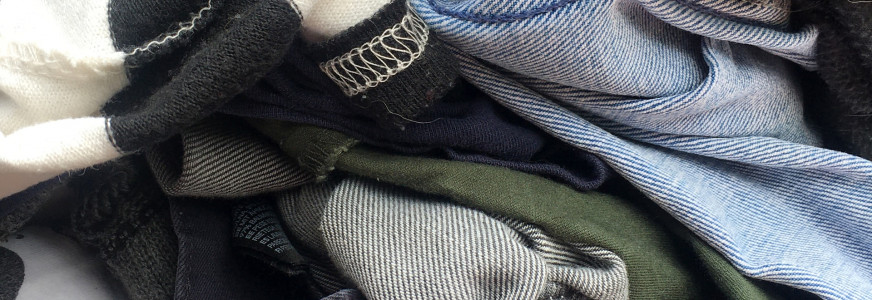Newsletter Buying & Production nr. 4, 2022
Modint view on EU Strategy for Sustainable and Circular Textiles
For your information, next week, Modint will publish her view on EU Strategy for Sustainable and Circular Textiles in the general newsletter.
Sourcing
- Import prices for fashion rise more than peak July 2015
- Sourcing at the limit
- Euratex economic update 2021 Q4
- Kingpins Amsterdam plans physical show in April 2022
CR
- Uzbek Cotton Now ‘Free’ of Child and Forced Labor, ILO Says
- China Aims to Recycle 25% of Textile Waste By 2025
Trade
- Taskforce Ukraine VNO-NCW – Law to liberalize imports into Ukraine takes effect
- Industrial duties abolished in Switzerland in 2024
Brexit
- Export clothing, textile & carpet to UK
Quality & Sizing
- Quality Control’s New Paradigm - improving oversight & supply chain collaboration
Safety & Compliance
- Safety Standard for Crib Mattresses
- Understanding the UKCA marking when selling toys on the GB market
Working at Modint
- Vacancies
Sourcing
Import prices for fashion rise more than peak July 2015
This article is a translaton by Google translate from German to English. The article was published in trade German magazine TextilWirtschaft.
Those who imported clothing in February had to pay 6.1% more than in the previous year. This is reported by the Federal Statistical Office ( Destatis ) as part of the publication of the import price statistics. This means that fashion price developments are lagging far behind the general price increase - in total imports rose by an average of 26.3% compared to the previous year - but the fashion sector has not seen such a strong increase in almost seven years. In the summer of 2015, the import prices of fashion had risen sharply. Price statisticians recorded the strongest growth in July 2015 with an increase of 6.9% compared to the same period of the previous year. Since then, the import prices of fashion have been very volatile. They fell between August 2020 and July 2021 and have been increasing month after month since last fall.
Price increases in the triple digit range
They follow the general price trend. The sharp rise in energy imports in particular has been pushing import prices up for months. Energy import prices were 129.5% higher in February than in February 2021. Overall, import prices in February 2022 were 26.3% higher than in the previous year. As also reported by the Federal Statistical Office, the rate of change from the previous year was 26.9% in January 2022 and 24.0% in December 2021. Read more>>
Sourcing at the limit
This article iis a translaton by Google translate from German to Englisch. The article was published in trade German magazine TextilWirtschaft.
Shorter, more expensive, later. With the war in Ukraine, supply chains have been completely disrupted. Rising costs, rising prices and the limited ability to plan processes put a strain on business. And the end is not yet in sight: the schnitzel for 35 euros, the tank filling for 95 euros. Soon a sandwich for 10 euros? Fashion will also become more expensive in the future and may no longer be available in the familiar abundance. Industry experts assume that supply chains will not be relieved anytime soon. Read more>>
Euratex economic update 2021 Q4
T&C industry evolution during the fourth quarter of 2021 and short-term prospects. In the 4th quarter of 2021, the T&C sector recovery continued, but at a slower pace. Looking forward, 2022 is expected to be particularly challenging. Read more>>
Kingpins amsterdam plans physical show in April 2022
Kingpins Amsterdam plans to organize a physical trade show from April 20-21, 2022 in Amsterdam. The US-based denim tradeshow will be held in a new venue, SugarCity, located in Halfweg near Amsterdam. The new venue is 40 per cent larger than Westergasfabriek and boasts of a whopping 100,000 sq. ft show space, writes FashionatingWorld.
CR
Uzbek Cotton Now ‘Free’ of Child and Forced Labor, ILO Says
The Cotton Campaign Framework - for Responsible Sourcing of Yarn, Garments, Textiles and other Cotton Products from Uzbekistan. Read more>>
China Aims to Recycle 25% of Textile Waste By 2025
As well as recycling a quarter of the 22 million tonnes of textile waste accrued each year, the country is looking to produce two million tonnes of recycled fibre annually within the next three years, according to an announcement from China’s National Development and Reform Commission (NDRC), Ministry of Industry and Information Technology and Ministry of Commerce, writes Business of Fashion. .The textile initiatives are part of a broader push for China to reach peak carbon emissions within the decade and carbon neutrality by 2060.“With the continuous improvement in people’s living standards, more and more used clothing [is being put to waste], and the problem of recycling textile waste has become increasingly prominent,” Zhao Kai, vice-chairman of the China Association of Circular Economy, said in a statement.
Trade
Taskforce Ukraine VNO-NCW – Law to liberalize imports into Ukraine takes effect
This update contains information about:
- Explaining the Russian counter-sanctions
- Update from the Ukraine Business and Trade Association (UBTA) on the latest regulatory developments
Statement of Russian counter-sanctions
There is a lot of uncertainty about the counter-sanctions that have been taken by Russia. The information we have collected on this subject is briefly summarized in the attached explanation. The overview includes, among other things, a list of relevant legislation and measures, an explanation of financial measures and an explanation of export restrictions on certain goods.
Update from the Ukraine Business and Trade Association (UBTA) on the latest regulatory developments (Appendix 2).
The Ukraine Business and Trade Association has released an information update regarding information on Ukrainian legislation to liberalize imports by suspending VAT and excise duties.
Industrial duties abolished in Switzerland in 2024
The Swiss parliament voted on the abolishment of customs duties on industrial goods in October 2021. After expiration of the optional referendum period, the Federal Council has now decided on the date of entry into force of the measure per 1 January 2024. As from that date there will be no more import customs duties in Switzerland on industrial goods. The abolition of industrial tariffs will have a positive impact on import costs in Switzerland, especially for consumer goods (e.g. cars, bicycles, personal care products, clothes etc.) and raw materials as well as components and semi-finished products imported for the manufacturing businesses. This will strengthen the competitiveness of the Swiss economy at home and in exports.
On the other hand, the main obligations of customs clearance, filing of declarations and the payment of VAT, other taxes and excise duties (e.g. automotive tax, alcohol tax, mineral oil tax etc.) will still remain. Furthermore, it might become more difficult for manufacturing and exporting companies to get the appropriate preferential origin documentation from their suppliers as those documents will not be needed for the import process anymore (but might be important for the later re-exportation).
Therefore, the challenges of cross-border supply chains and interactions with multiple external parties, such as suppliers, clients, freight forwarders and customs brokers remain highly complex and appropriate customs and trade processes are required. The same applies to maintaining correct master data (e.g. tariff codes, countries of origin etc.) in ERP systems and to allocate clear responsibilities to the different tasks in order to fulfill all the reporting requirements.
Brexit
Export clothing, textile & carpet to UK
Source: Eurostat / Modint
Source: Eurostat / Modint
Quality & Sizing
Quality Control’s New Paradigm - improving oversight & supply chain collaboration.
Read the report.
Safety & Compliance
Safety Standard for Crib Mattresses
A Rule by the Consumer Product Safety Commission of the United States of America. Read more>>
Understanding the UKCA marking when selling toys on the GB market
Since 1 January 2021, the UKCA (UK Conformity Assessed) marking has been a mandatory certification for products being placed on the market in Great Britain (England, Wales and Scotland). We answer your commonly-asked questions on what it means when selling toys in Great Britain.
Working at Modint
Vacancies
Modint is looking for a consultant and a junior consultant. Please click here for more information (in Dutch).

